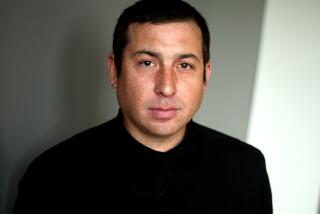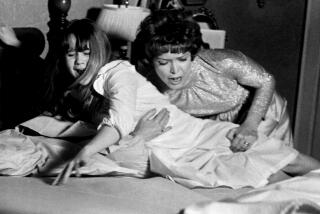David Boehm; Published Guinness Book
David A. Boehm, who as the first American publisher of the Guinness Book of Records turned an obscure compendium of extreme behavior into an international bestseller, has died.
Boehm died at his New York home on Sunday, his 86th birthday, of complications following a stroke.
Once described as an impish man who looked capable of a Guinness feat himself--”perhaps balancing the most corn cobs on his head or devouring the most crayons during a solar eclipse,” the New York Times’ N.R. Kleinfield wrote in 1980--Boehm entered the publishing business soon after graduating from Columbia University in 1934.
He worked as an editor, production manager and sales manager at various New York houses before founding Sterling Publishing Co. in 1949. He quickly carved a niche churning out how-to books with titles like “Stampography,” inspired by his own interest in stamp collecting, and “Coinometry,” about coin collecting.
Then, in 1956, he stumbled upon the book that would put Sterling on the publishing map.
He discovered, languishing in a Boston warehouse, 30,000 copies of “The Guinness Book of Superlatives,” a British import that appeared to be going nowhere fast in the United States.
Sensing a hit, he obtained the rights to sell the book in the U.S. from Arthur Guinness Son & Co. of England, a 200-year-old brewery that launched the tome in 1956 to settle arguments about “the largest, the longest, the heaviest, the hottest, the coldest, the wettest, the mostest, etc.,” according to the foreword to the 1980 edition. Guinness was more than happy to hand off the book to Boehm as long as it received a split of the profits.
Boehm quickly set to work. He modified the title, junking “Superlatives” for the more American-sounding “World Records.” But sales did not take off until 1961, when he gained the rights to produce a separate U.S. edition, beefed up with American record-breaking acts.
Sales soon shot up to 100,000 a year in hardcover. By the late 1970s, paperback sales were averaging 2 million to 3 million copies a year.
Boehm claimed that the American edition was more authoritative than the British version, relying on stiffer rules for verification of the wildly diverse records it tracked, such as tallest hairdo, largest pizza and longest potato.
He set moral standards, too, eschewing entries that encouraged dangerous behavior.
Boehm vetoed entries for competitions on stuffing the most people in a telephone booth, for instance, “because kids can get suffocated”--and for potentially lethal ramp-jumping over cars. Also banned was an entry on the man who killed 26 people because, Boehm once said, “someone else is going to try and kill 27.”
By 1980 he was licensing merchandise spinoffs, including T-shirts, a board game and paper cups inscribed with Guinness stunts.
He also appeared regularly on “The Guinness Game,” a syndicated early-evening game show produced in 1979 that featured four live, onstage attempts to break world records.
Although its producers insisted it was not meant to be a freak show, it seemed to favor the bizarre. “One man had to eat 17 bananas in less than two minutes; another, to jump rope 50 times on a wire suspended 33 feet above the stage; another, to make 256 five-foot-long noodles in under 63 seconds; and four burly men attempted to change all four tires on a sedan in less than two minutes,” Tim Brooks and Earle Marsh wrote in “The Complete Directory to Prime Time Network and Cable TV Shows.” Boehm was on hand to authenticate the records for inclusion in the book.
The show folded after 24 episodes, many of which proved embarrassing for Boehm, such as the time the backward-facing tomahawk thrower missed all of his targets.
Boehm also was a founding member of the Guinness Book of World Records Museum, which began in New York’s Empire State Building before expanding to other sites. He appeared with David Frost on television specials that featured interviews with record holders, such as a man struck seven times by lightning. Some shows focused on attempts to set new records, such as holding down a helicopter with one’s teeth.
He made such a success of the books and merchandise that in 1983 Guinness sued for trademark infringement, trademark dilution and unfair competition. The case lasted 18 months, ending in Sterling’s favor when a federal judge found Guinness guilty of “blatantly unreasonable cupidity.”
Boehm retired in 1980 but continued to promote the book and its spinoffs until his company sold the rights back to Guinness in 1989 for $8 million.
He is survived by his wife, Nijole, three daughters, two sons, seven grandchildren and seven great-grandchildren.
More to Read
Sign up for our Book Club newsletter
Get the latest news, events and more from the Los Angeles Times Book Club, and help us get L.A. reading and talking.
You may occasionally receive promotional content from the Los Angeles Times.







